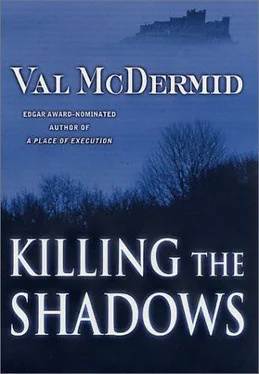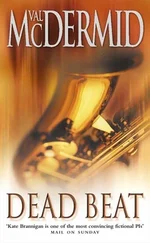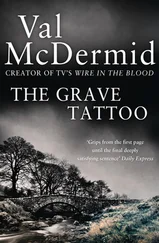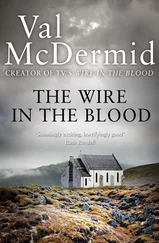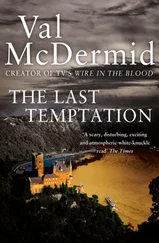At half past noon precisely, Jane pushed her chair away from the desk and stretched her arms above her head. She returned through the silent house to the kitchen, switched on the radio tuned to a classical music station and took a portion of frozen vegetable soup out of the freezer. While it microwaved, she opened the morning’s post, delivered by the security staff while she was at work. After the soup and a couple of slices of bread, she returned to her office, where she dictated replies to the day’s letters.
She left the tape on the kitchen counter, where the security staff would collect it and deliver it to the woman in the nearby town who acted as her secretary. The letters would return on a disk that evening, ready for Jane to print out and sign. The two women met only rarely at social occasions in town, but it was an arrangement that worked well nevertheless.
Jane walked out into the mud room and picked up a fleece jacket, letting the dogs back out into the grounds. She walked down the path to the jetty, head up as she savoured the fresh afternoon air and tested the breeze. The cloud layer had lifted, leaving a blue sky smudged with occasional puffs of cumulus. She reckoned the wind was somewhere around force five, just right for a brisk sail in the 2i-foot Beneteau First Classic, currently her favourite of the three boats she kept moored at her small private marina. It was perfect for single-handed sailing, unlike the bigger Moody that she preferred when she and Pierce went out on the lough together.
She checked the boat over, then cast off, allowing it to drift out from the jetty before she raised the mainsail. Leaving a single reef in it, she headed out towards the centre of the lough, planning her afternoon cruise in her head without bothering to consult her charts. She knew this part of the lake better than she knew her own face in the mirror. Three days out of four, she sailed more or less the same route, depending on the winds. It was, she had decided, best for views across the water to the hills as well as having no treacherous snags to trip her if she grew forgetful, her mind on her work rather than her helm.
Soon she had left the shore behind, moving across the water at a sharp forty-five-degree angle, the only sounds the hiss of the water against the hull and the crack of the wind in the sails. Jane gloried in the feel of the air against her skin, loving the sense of release that sailing the lake always brought her. Who cared if people thought she was weird, a slave to routines and patterns, a paranoid recluse? She knew different. There was nothing routine about what she did on the water every afternoon she could, pitting herself and her craft against the weather and the wildness of the lake. Out here, she was Queen of Freedom Hill. Fuck them. They could call her anal as much as they liked. All that proved was how little they knew of her. They knew nothing of her life at the tiller. Nor did they know about the fierce passion of her relationship with Pierce, kept secret by both of them for so long they had forgotten there was any other way to live.
He visited when he could, which, given the schedule of a member of the Garda Siochana’s undercover drug squad, was not often. They had met when he’d attended an FBI course at Quantico. One of the instructors, an old college friend of Jane’s, had invited them both to dinner and the spark had been instant. Within weeks, she had sold her estate in New England and bought the property in Ireland. It was only after she’d made the move that she discovered the unexpected bonus of the tax exemption the Irish state extended to writers. Now she was as settled here as she’d ever been anywhere.
And when Pierce was travelling undercover, she would sometimes take a room in the same hotel. Being a recluse had its advantages. No one recognized her the way they might with other best selling authors who appeared on chat shows and full-colour jacket photographs. Producing ID for Margaret J. Elias, her given name, had never raised so much as an eyebrow with hotel clerks. In two days, proofs finished and sent off to New York, she’d be flying out to Morocco to meet him. She could hardly wait.
After a long tack, she went about and cut a course at right angles to her previous direction. It would bring her nicely round the headland and into the bay, where she’d lose some of the wind, allowing her plenty of leeway to alter her heading to take the boat back out towards the centre of the lake.
Coming into the bay, she noticed a dinghy tacking erratically back and forth across the line she planned to take. With a touch on the tiller, Jane adjusted her heading, hoping the dinghy sailor would respond accordingly. But suddenly, the small boat heeled over in a capsize, catapulting the man at the helm into the water. Within seconds, the wind had carried the dinghy in one direction, the current had swept the man in the other.
Calling down the wrath of the gods against fools who didn’t know what they were doing on the water, Jane started her engine then hurried forward to lower the sail. Inside a minute, she was motoring slowly towards the bobbing orange life jacket that was all she could see clearly of the idiot who obviously didn’t know how to handle his boat.
Coming alongside him, she set the engine to idle and dropped the swim ladder at the stern. The man swam clumsily round to the back of the boat and hauled himself out of the lake, icy water streaming from him. “Thanks,” he gasped, unfastening his life jacket and slipping one hand inside it.
“I guess you don’t know these waters,” Jane snapped, turning away to put the engine back in gear.
She never saw the cosh as it arced through the air towards the base of her skull.
From below, the two women on the sheer side of the hill looked like a pair of cursors moving diagonally across a muted green screen. They had climbed swiftly from the Wye Valley at Litton Mill through the trees that lined the old railway, then out on to the bare hillside where even sheep preferred not to scramble among the limestone outcroppings. They reached the highest point of the climb and Fiona, who was quicker on her feet over the familiar terrain, chose a boulder with enough of an edge to perch on while she waited for Caroline to pant her way up the last twenty yards. She looked down at her companion with an affectionate smile.
When Fiona’s sister Lesley had been an undergraduate at St. Andrews, she’d learned as much about herself as she had about her studies. One of the things she’d discovered was the direction of her heart. At the time of her murder, she’d been tight in the grip of first love. The revelation of its nature had been another aspect of her death that her parents had found difficult to cope with. For Fiona, though, it had come as no surprise that the person who was sharing her sister’s bed was another woman. Lesley hadn’t actually told her in so many words, but Fiona had understood the meaning of the way she spoke about her friend Caroline Matthews.
Because their relationship had been clandestine, Fiona was also the only person with whom Caroline could properly grieve. It was no surprise that out of grief, the bond of friendship had been forged. Now, twelve years later, Fiona and Caroline met whenever Caroline was in London, and they communicated irregularly by phone and e — mail. And at least three times a year, they met to walk in the Peak District.
Caroline had remained in St. Andrews and was now a lecturer in mathematics. She had moved on, as Fiona had. But for both of them, the loss of Lesley was an undercurrent that would forever inform the tenor of their emotional relationships. And the debt of guilt that both bore about Lesley meant they would never let each other down.
Caroline reached the crest, scarlet and panting. She collapsed on a boulder near Fiona, her breath ragged and shallow. “Oh God,” she gasped. “I am so out of condition. The summer was such a washout, we hardly got out on the hills at all.”
Читать дальше
Конец ознакомительного отрывка
Купить книгу
